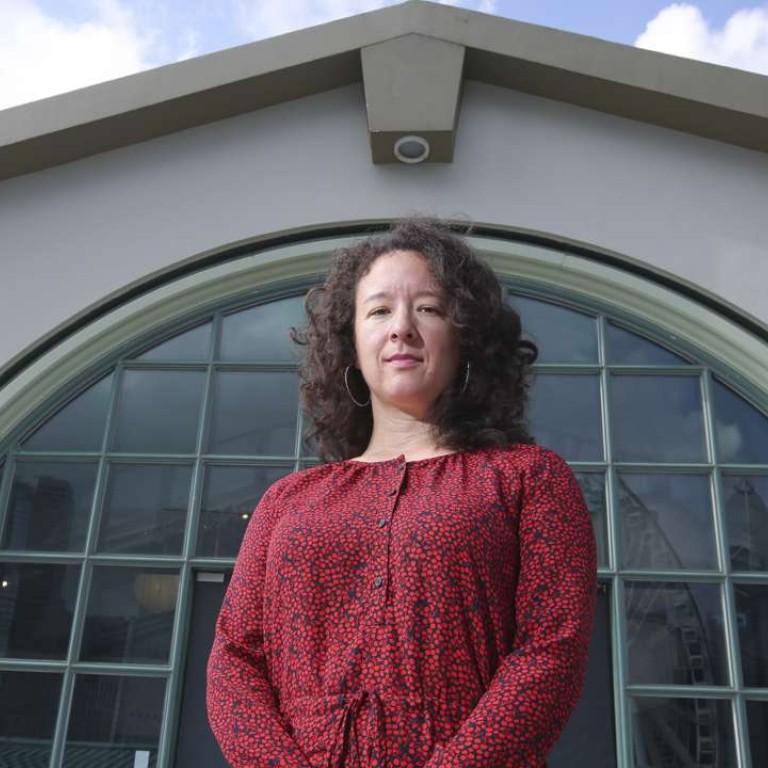
Author Leta Hong Fincher explains how term ‘leftover women’ is Chinese propaganda
The writer and journalist reveals how the ‘hogwash’ phrase is exploited in attempt to increase procreation among the young and educated
Songs and pompoms Both my parents were China scholars. My mother, who is Chinese American, is a linguist, and my father, who was white American, was a historian. When I was six, they both got tenure at the Australian National University, so we moved to Canberra, where I spent most of my childhood. My mother spoke Mandarin at home, so when I went on to study Chinese at university, I had a huge advantage.
We made many trips to China, starting in the early 1970s. You couldn’t travel independently then, but a delegation of Chinese Americans was invited to visit after the secret talks between Henry Kissinger and Zhou Enlai that paved the way for Richard Nixon’s visit. My mother got a place on that trip and brought me with her. I was very young, but I still have isolated memories of little children with their cheeks painted red, waving pompoms and chanting songs under big banners saying, “Welcome, aunties and uncles!”
Mud huts and trains I vividly remember a visit to my mother’s ancestral village, outside Xiamen, in 1979. Many people there were named Hong, like us, but they lived in mud huts and were malnourished and stunted. I was 11 and I towered over everybody. But with that exception, I didn’t see the real suffering. People were extremely friendly, and I always felt welcomed and happy there. I loved taking the train – it was such an adventure, and the rice paddies I could see from the window were beautiful. I obviously had quite a romanticised vision of the country.
A good man is hard to find: China's 'leftover women' look for love abroad
Escaping SARS I did a bachelor’s degree in East Asian studies at Harvard, and a master’s at Stanford, and then decided to become a journalist. After a few years, I got a job for Radio Free Asia in Hong Kong, helping to launch their Mandarin language service and reporting on the run up to the handover. Later I moved to Beijing, to become a correspondent for Voice of America. I met my husband, the journalist Michael Forsythe, there, and was pregnant when Sars broke out. It was clear that the government had been covering up the death toll, so I flew to Washington DC to have my baby and we decided to stay there.

The politics of possession I opened a Weibo account, called for people to take part in my study and sent out a questionnaire about home purchasing: I asked respondents how they raised the finances, who contributed, whose names were on the deeds and their motivation for buying the home. I received a deluge of responses, including some very heartfelt testimonies from women saying they had felt pressured by their boyfriends, husbands or their own families to leave their names off the deeds. I found out that urban home purchases are often complicated transactions involving intense negotiations as families pool their finances to buy expensive properties. The parents of boys feel pressured to buy their son a home because the media perpetuates a myth that he won’t find a bride without one. The bride might prop up this “head of the household” notion by contributing her savings while her parents pressure her to leave her name off the deeds, fearing that the man won’t marry her if she insists. Some women had agreed to this because they did not want to become a “leftover woman”. This was how I first encountered the concept.

Quality control I discovered that in 2007, the All-China Women’s Federation, which is supposed to be a feminist agency, first defined the term “leftover women” as meaning an urban, educated woman, over the age of 27, who is still single. The Ministry of Education adopted the term as part of its official lexicon, and state media started aggressively pushing it through news reports, op eds and cartoons that mocked single women for being too picky and having unrealistically high standards. I believe the government pushed this notion as part of its eugenics-driven approach to population planning. It sees women as reproductive tools and wants so-called “high quality” women – who are generally urban and educated – to have more children, and those people it considers “low quality” to have less. But, of course, educated women tend to delay marriage and childbearing. It’s a big problem for the Chinese government, which is why they developed this propaganda tool to scare women into thinking that if they don’t marry in their 20s, they’ll never find a husband. It’s crass, it’s insulting and it’s complete hogwash, but it was effective for a while, before women started wising up and pushing back against this stigmatisation.

I’m writing a second book, about the new rise of feminism in China.

